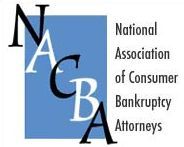There is no limit on how much you can owe and still qualify for Chapter 7 bankruptcy. In fact, the more you owe, the more likely it is that you need bankruptcy relief. Of course, at Seelinger Law, we consider all of your circumstances before recommending Chapter 7 bankruptcy.
Higher debt totals require more income to maintain payments to creditors, but if a potential client with a large amount of debt also has enough income to make their credit card and loan payments, or enough income to repay a significant portion of the debts through a Chapter 13 plan, Chapter 7 might not be appropriate even with a high debt total. We also look at the circumstances surrounding how you incurred so much debt.
Overspending is not an uncommon source of high debt among Chapter 7 debtors. However, if the debts were incurred very recently under circumstances pointing to an intent to take advantage of lenders, i.e. credit card balances were run up to purchase luxury items with the intent of filing for bankruptcy instead of paying for the charges, we would caution our client of the risk of being denied a discharge for abuse of the process.
Fortunately, in the vast majority of cases, the high debt totals arose over a long period of time, often accompanied by loss of employment forcing people to turn to credit cards to pay for their living expenses, with no intention of abusing the system. Even if the credit cards were overused without such an explanation, the debt total is not a problem in most cases, because there was no intent to abuse the system.

